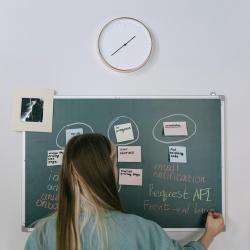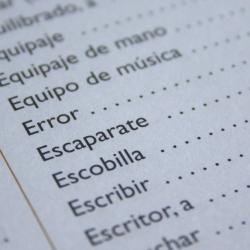How to Overcome Plateaus in Language Learning
Language learning is an exciting and rewarding journey, but it is not without its challenges. One of the most common hurdles language learners face is the plateau—a period where progress seems to stall, and motivation wanes. However, understanding why plateaus occur and adopting specific strategies can help you overcome them and continue advancing towards fluency.
Understanding the Plateau Phenomenon
A plateau in language learning is a phase where noticeable progress slows down or seems to halt entirely. Several factors contribute to this phenomenon:
-
Diminished Returns: Initially, language learners experience rapid gains as they learn basic vocabulary and grammar. However, as proficiency increases, the amount of effort required to make further progress also rises.
-
Fossilization: This occurs when incorrect language habits become ingrained, making it harder to achieve native-like proficiency.
-
Lack of Challenge: Repetition of familiar material can lead to boredom and stagnation.
-
Psychological Factors: Motivation fluctuates, and learners may lose confidence or feel overwhelmed by the complexity of the language.
Strategies to Overcome Plateaus
-
Set Specific Goals: Break down your language learning objectives into smaller, achievable goals. Instead of a vague aim like "improve my Spanish," set specific targets such as "learn 50 new vocabulary words related to my profession this month."
-
Diversify Your Learning Materials: Incorporate a variety of resources into your study routine. Listen to podcasts, watch movies or TV shows, read books, and engage with native speakers. This variety not only keeps you engaged but also exposes you to different dialects and colloquialisms.
-
Focus on Active Usage: Shift your focus from passive learning (such as reading or listening) to active usage. Practice speaking and writing as much as possible. Join language exchange groups or online forums, and try to think in the target language during daily activities.
-
Incorporate Deliberate Practice: Identify specific areas of weakness and practice them intentionally. If pronunciation is an issue, work on mimicking native speakers. If grammar is challenging, focus on sentence construction exercises.
-
Seek Feedback: Engage with native speakers or teachers who can provide constructive feedback. Understanding your mistakes is crucial for improvement and helps prevent fossilization.
-
Refresh and Revisit: Revise concepts you have learned in the past to reinforce your foundation. Sometimes, revisiting earlier material with a more advanced perspective can lead to new insights.
-
Stay Motivated: Keep your motivation high by reminding yourself of your reasons for learning the language. Celebrate small victories and track your progress over time. Joining a community of language learners can also provide encouragement and accountability.
-
Embrace Mistakes: Accept that making mistakes is a natural part of language learning. Each error is an opportunity to learn and improve. Adopt a growth mindset and view challenges as stepping stones to mastery.
Conclusion
Experiencing a plateau in language learning is a normal part of the process, but it doesn’t have to derail your progress. By setting clear goals, diversifying your study methods, and actively engaging with the language, you can overcome these obstacles and continue to grow. Remember, patience and persistence are key; with the right strategies in place, you will emerge from the plateau more proficient and confident in your language skills.






















